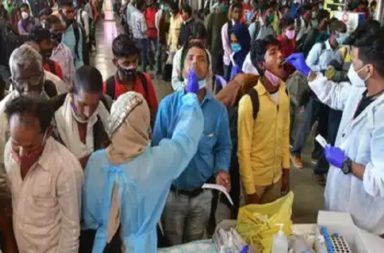India has developed its first indigenous COVID-19 vaccine, Covaxin, and has started its preparations to begin the much-awaited human clinical trials. Covaxin will be tested on more than 1100 people. The vaccine developed by Bharat Biotech recently got the green signal from ICMR and the apex body has given nod to a total of 12 hospitals to begin preparations to conduct human clinical trials.
A new vaccine candidate has to pass testing in animals, following which clinical trials kick in. Then, over three phases, the vaccine candidate’s safety and efficacy are tested as per protocols. The drug can have side effects too. Therefore, the drug will be first tested on a bunch of people through which the information about its effect and how much amount of medicine is necessary for diagnosis is noted. This process is called a clinical drug trial in the language of medical science.
This process is completed in several steps:
Pre-clinical tests: In this primary stage, scientists test the vaccine on animals such as mice or monkeys to see if it produces an immune response.
Phase I trials: The experimental vaccine is given to humans, usually between 20-80 subjects, to test safety and dosage and check whether it stimulates the immune system.
Phase II trials: A larger group of several hundred individuals are enrolled for testing and they are split into groups age-wise such as children and elderly.
Phase III trials: The vaccine candidate is given to thousands of people in this stage. Here, the scientists check how many become infected compared with volunteers who receive a placebo.
Approval: After Phase III trials, the vaccine developer submits a license application to the regulatory authority in their respective country. The regulator then inspects the factory where the vaccine will be made and approves its labelling.
How will this test complete its structure?
According to the BBC, Chandrasekhar Gillurkar, a doctor from Nagpur-based Gillurkar Multispeciality Hospital, has been selected for the process of human clinical trials. He said that 100 people will be selected for Phase I and Phase II trials. Initially, they will be checked for any side-effects. Dr Gillurkar further added that in the second phase, people will be given the vaccine on the 14th day to see if any antibodies are being made in them. Also, their immunity will be investigated. Then they will be examined again on the 28th and 50th day. According to Dr Gillurkar, many types of tests will be done before and after the vaccine.
Who will volunteer for this test?
According to Dr Gillurkar, it will be ensured that people selected for human trials are healthy. People between 18 and 55 years of age will be selected for the test. This test will include those with no corona-antibodies. In the last phase, the vaccine will be used only when it is ensured that the person chosen does not have any heart disease, any kidney problem.





